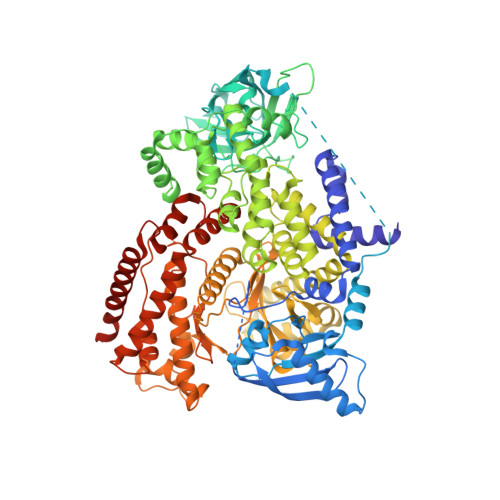Design and Development of a Macrocyclic Series Targeting Phosphoinositide 3-Kinase delta.
Spencer, J.A., Baldwin, I.R., Barton, N., Chung, C.W., Convery, M.A., Edwards, C.D., Jamieson, C., Mallett, D.N., Rowedder, J.E., Rowland, P., Thomas, D.A., Hardy, C.J.(2020) ACS Med Chem Lett 11: 1386-1391
- PubMed: 32676144
- DOI: https://doi.org/10.1021/acsmedchemlett.0c00061
- Primary Citation of Related Structures:
6ZAA, 6ZAC, 6ZAD - PubMed Abstract:
A macrocyclization approach has been explored on a series of benzoxazine phosphoinositide 3-kinase δ inhibitors, resulting in compounds with improved potency, permeability, and in vivo clearance while maintaining good solubility. The thermodynamics of binding was explored via surface plasmon resonance, and the binding of lead macrocycle 19 was found to be almost exclusively entropically driven compared with progenitor 18 , which demonstrated both enthalpic and entropic contributions. The pharmacokinetics of macrocycle 19 was also explored in vivo , where it showed reduced clearance when compared with the progenitor 18 . This work adds to the growing body of evidence that macrocyclization could provide an alternative and complementary approach to the design of small-molecule inhibitors, with the potential to deliver differentiated properties.
- GSK Medicines Research Centre, Gunnels Wood Road, Stevenage SG1 2NY, United Kingdom.
Organizational Affiliation:

















